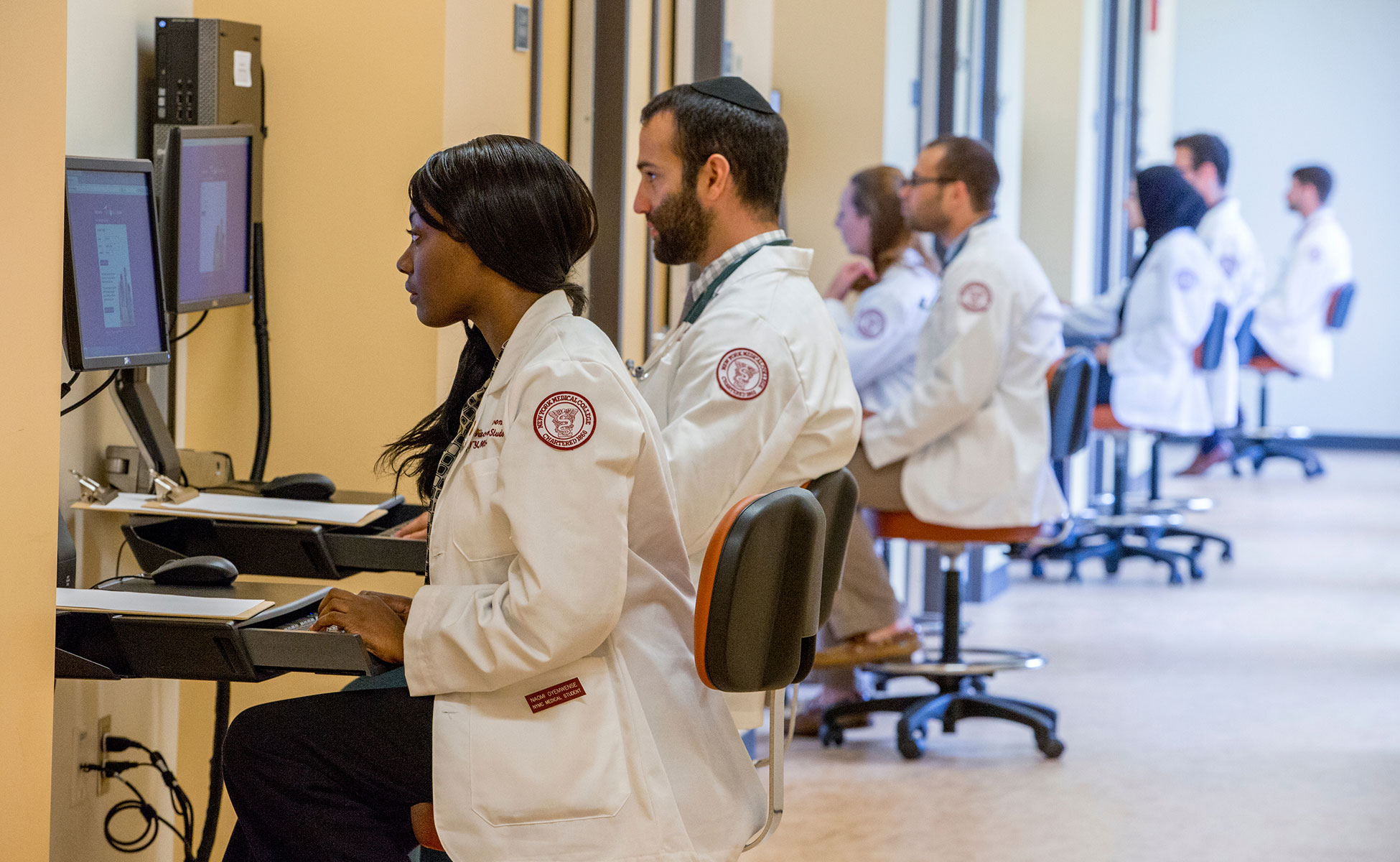Below are the pre-clerkship foundational science courses you'll take as part of phase one of your medical education.
Transition to Medical School
(UMDM 1000 - 1 credit)
Transition to Medical School is a week-long course which introduces incoming medical students to the support services offered at the College and provides an overview of the longitudinal career advising program and curriculum for the SOM.
Fundamental Processes of Life
(UMDM 1101 – 25 credits)
The Fundamental Processes of Life lays the critical groundwork for success in medical school, including aspects of the history of medicine and an introduction to health system science. The course focuses on the structure of the human body, both at the cellular and gross anatomic level and will introduce principles of body functions. In addition, students will begin learning the skills of history-taking and physical examination skills, communication, clinical reasoning, self-directed learning, and ethical decision-making necessary for optimal patient care.
Introduction to Systems
(UMDM 1002 – 14 credits)
Introduction to Systems bridges the content from the Fundamental Principles course, introducing concepts that will be applied through all the remaining systems-based courses. The course is divided into two modules: Host Defense/Bugs and Drugs, and Heme/Neoplasia, all of which integrates basic science, patient care, and health systems science principles.
Systems 1: Brain and Behavior
(UMDM 1003 – 11 credits)
Brain and Behavior integrates fundamental and abnormal neurosciences, behavioral sciences, as well as relevant ethics, population and social determinants of health. Students will advance their history-taking and physical examination skills particularly as it relates to the neurologic system and to behavior, with more advanced communication, clinical reasoning, self-directed learning, and ethical decision-making. Issues around racism and bias in healthcare are also be addressed.
Systems 2: Cardiorespiratory
(UMDM 2000)
The Cardiorespiratory course integrates normal physiology, anatomy, relevant biochemistry, and pathophysiology of these two related organ systems. Students will recognize life and organ threatening disease processes, relevant diagnostic testing, clinical imaging, and pharmacological management of diseases affecting the cardiovascular and respiratory systems. The course also incorporates clinical skills pertaining to the cardiovascular and respiratory systems.
Systems 3: Renal/Reproduction/Endocrine
(UMDM 2001)
The Renal/Reproduction/Endocrine course integrates normal physiology, anatomy, relevant biochemistry, and pathophysiology of these three organ systems. Students will recognize life and organ threatening disease processes, relevant diagnostic testing, clinical imaging, and pharmacological management of diseases affecting the renal, reproductive, and endocrine systems. The course also incorporates clinical skills pertaining to these systems.
Systems 4: GI/Dermatology/Musculoskeletal/Rheumatology
(UMDM 2002)
GI/Derm/MS/Rheum focuses on normal physiology, anatomy, relevant biochemistry, and pathophysiology of these systems, including relevant diagnostic testing, clinical imaging, and pharmacologic management of processes affecting these systems, as well as clinical skills pertaining to these systems.


